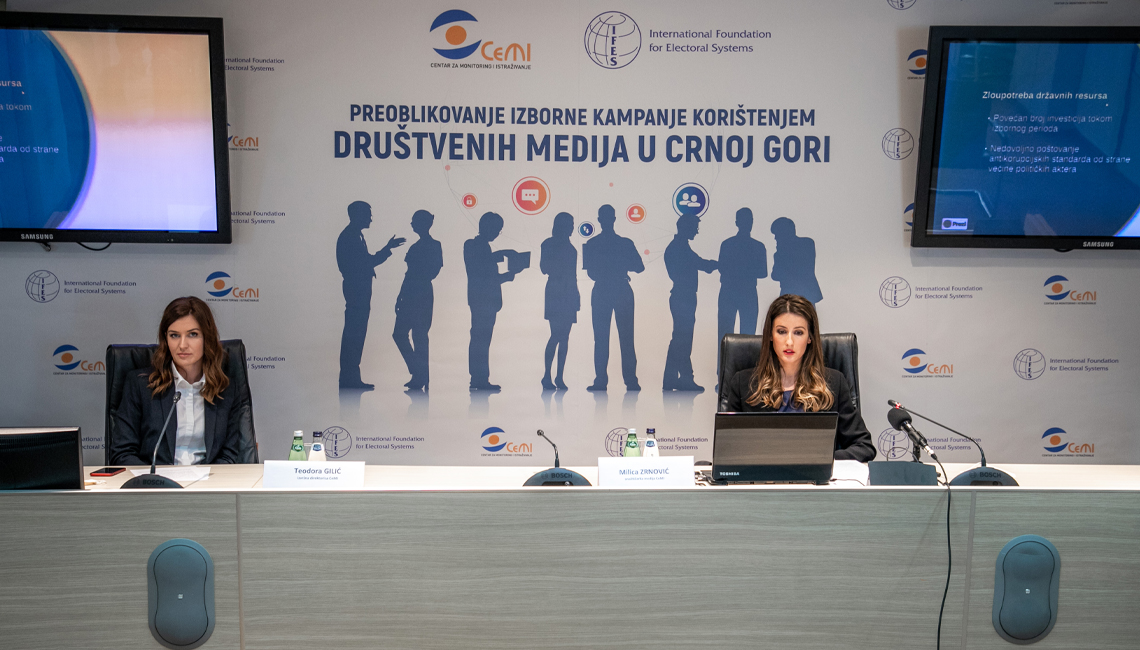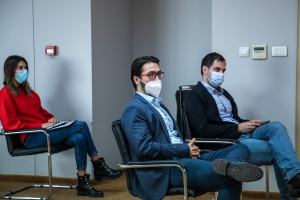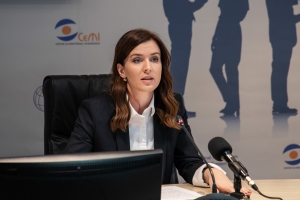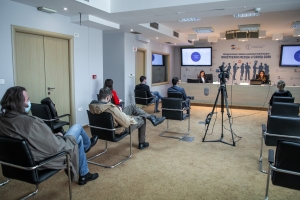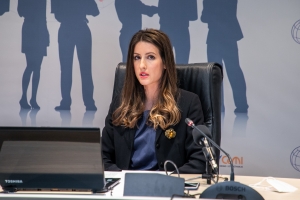In Montenegro, the creation and use of various pages, groups and meme accounts on social networks is on the rise in order to reach as many voters as possible, which can have negative consequences on the electoral process, because political entities, without revealing their authentic goals, influence political opinion of citizens.
This was announced at the press conference of the Center for Monitoring and Research (CeMI) on the occasion of the presentation of the final report "Reshaping the election campaign using social media in Montenegro".
The media analyst at CeMI, Milica Zrnovic, said that the monitoring was carried out on the most used social media platform in Montenegro, Facebook, in the period from March to August, and that the Crowd Tangle platform was used for it.
"This report is the first of its kind published in Montenegro in connection with coordinated inauthentic behavior and the collection of evidence of misuse of state resources on and off the Internet. Coordinated inauthentic behavior is defined as "a group of pages or people who work together to deceive others about who they are or what they do," Zrnovic stated.
She clarified that the scope of the research focused primarily on analyzing the behavior of various entities on Facebook during the 2020 election period and whether it was in accordance with the standards of the Facebook community.
"The activities included monitoring the behavior of public accounts on Facebook, i.e. pages (including political parties, politicians and media), groups and meme pages and profiles. In this regard, CeMI monitored 135 public accounts and 153.6 thousand contents shared during the duration of the project", said Zrnovic.
Speaking about the monitoring of coordinated inauthentic behavior, as she said, CeMI monitored 51 public accounts (17 pages, 8 groups and 26 meme pages and profiles) and 134.6 thousand contents shared in the period from March to August 2020.
"Regarding the misuse of state resources, CeMI monitored 59 public pages and accounts (19 state bodies, 9 public companies, 20 political parties and 11 profiles categorized as "politicians") and 18,999 contents shared during a period of six months. In addition, in both cases, 25 media outlets were monitored, while analyzing behavior that could suggest the existence of coordinated behavior and misuse of state resources on social networks," Zrnovic pointed out.
She said that the data indicate that the use of technology, especially social media for political purposes, is a trend in Montenegro.
"There is an evident increase in the use of various tools available on the Internet in order to reach as many citizens as possible, that is, voters. One of the popular tools is the one we presented in this Report - the creation and use of various pages, groups and mime accounts on social networks (dedicated to entertainment, culture or community) which, without revealing their authentic goals, share content through which they promote a certain political narrative. Zrnovic said.
All of that, as she warned, can have negative consequences on the electoral process, "because political subjects influence the political opinion of citizens in that way, and thereby endanger the right to vote for a free and informed election."
"Also, there is room for manipulations on the Internet, such as creating the illusion of mass support or the popularity of certain subjects in order to achieve true support, and the spread of disinformation/fake news/misinformation. In addition, technologies create the possibility for international actors to interfere in national election processes," said Zrnovic.
Research data, as she said, show that state institutions were not as active as political parties on social networks during the election period.
"What is most worrisome is the increased number of investments during the election period (eg opening of buildings, infrastructure reconstruction, road works, opening of parks in urban areas, public lighting, etc.), which were used as an instrument by both the ruling and opposition parties." "These data show that Montenegrin political parties still find a way to disobey anti-corruption standards, both at the local and national level," said Zrnovic.
According to her, the consequence could result in the violation of campaign rules and misuse of state resources that were not sanctioned, which, as she stated, would negatively affect the overall integrity of the election process, as well as citizens' trust in fair and free elections.
Zrnović assessed that legislators, electoral authorities and other electoral actors should jointly capitalize on the opportunities and solve the challenges brought by the use of social media during elections.
"With this in mind, domestic anti-corruption strategies and tactics could play a crucial role in preventing misleading political behavior on social media and misuse of government resources, as political actors around the world increasingly adopt new methods for creating and artificially creating social media content." to the media", stated Zrnovic.
She pointed out that civil society organizations and the media play an important role, not only in terms of educating citizens and implementing campaigns to raise awareness about digital rights and threats on the Internet, but also in terms of strengthening their own capacities in the use of new technologies and the fight against misleading campaigns, such as disinformation, fake news, wrong information, etc.
The CEO of CeMI, Teodora Gilic, said that the organization, in cooperation with the International Foundation for Electoral Systems (IFES) and Facebook, is implementing a pilot project aimed at improving the integrity of the electoral process in Montenegro, protecting the right to freedom of expression in the digital space, while respecting the established rules of political advertising during the election campaign, as well as other standards and rules of Facebook.
She explained that the focus of the project was on monitoring social networks ahead of the parliamentary elections held this year.
"It is important to emphasize that social media are not regulated by Montenegrin legislation, so the goal of the monitoring was to assess the way and rate of use of social media during the political campaign in Montenegro, that is, to assess whether there was a violation of the Facebook community standards," said Gilic.
At the press conference, it was announced that through the partnership with Facebook and IFES, CeMI managed to direct the attention of the appropriate teams within Facebook to the suspicious network of Facebook profiles and to their further monitoring.
